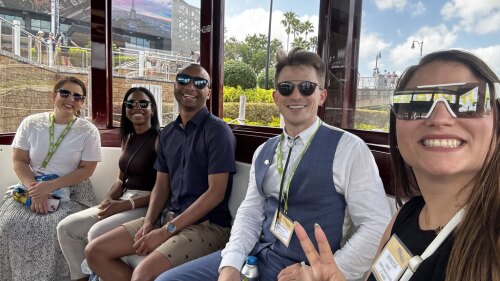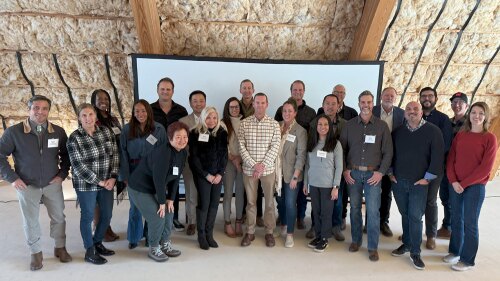Whatever you think of technology, it is hard to ignore how it is changing the way people do virtually everything. Just don’t refer to technology as “disruptive” in front of Aaron Zifkin, Airbnb’s country manager for Canada.
“The term disruptive drives me nuts,” he said during a panel discussion of tech industry titans held at the inaugural ULI Toronto Emerging Trends and City Building Fall Symposium in November. “What if we call it disruption-innovation, a term that we’re all comfortable with, a term that has a positive connotation.”
Joining Zifkin in the discussion of technology’s impact on cities were Ian Black, Uber Canada’s general manager; Colin McKay, Google Canada’s public policy and government relations head; and Steve Ladurantaye, Twitter Canada’s government partnership head. Toronto Chief Planner Jennifer Keesmaat, who has embraced social media and hosted two TEDx talks, moderated the discussion. Planning, building, and governing cities are no exception to technology’s growing reach and influence, and below are the themes that emerged from the discussion.
Autonomous Cars May Drive Up Auto Sharing, Free Up Streets
McKay predicts a major shift in the relationship people have with cars as private ownership declines and car sharing becomes more widespread. The idea of car ownership will be turned on its head.
“I think you’ll see this idea of ownership, which has been ingrained in us, turns the tide towards sharing,” he said.
People will simply order vehicles from their mobile devices to commute or run errands. Once a passenger gets to his or her destination, the vehicle will drive off to pick someone else up.
“One of the great opportunities of driverless cars is in fact that we no longer need to own vehicles,” Keesmaat said. Another benefit of this model is that it could alleviate congestion, and reduce medical spending by eliminating human error. “Honestly, everyone in this room is a bad driver; none of us are good at it,” McKay quipped. Those savings in health care costs could go toward fighting “social inequality,” he suggested.
The Pace of Tech Development Is Disruptive Itself
Technology is not simply a disruptive force for municipalities to contend with because of the apps and devices that firms are bringing to the market. The pace at which new technologies are developed also is a factor, Zifkin said. “Now we’re seeing businesses that go from zero to Mach speed literally overnight, and so people are trying to grapple with this,” he said. “These patterns that all innovations go through is just being hyper-accelerated, and that’s a tough thing for people to understand.”
This presents certain challenges for regulators. Perhaps most important, how can they keep up? “In that environment, it’s going to be impossible for us to have a regulatory framework where it’s entirely prescriptive,” said Black. “Regulations in that world of innovation and constant disruption are going to need to be much more flexible and allow for future iterations [of technology] to happen.”
Technology Is Blurring the Line between Private and Public Services
Uber’s pool option, which pairs users going in the same direction and lets them split the cost of a trip, might seem like little more than glorified carpooling right now, but Black sees the potential for something bigger. “What if, rather than a four-person vehicle, there was a 20-person vehicle—does that start to actually look like public transit, and is public transit not the job of the municipal government?” he asked.
Black predicted an increase in situations involving an app addressing a function or service previously provided by the government. “The question for cities is going to be what do we allow to happen, under what terms do we allow it to happen, and do we want to take the point of view that ideas and experimentation are a good thing?” he said.
Technology Is Reshaping the Civic Process
Important gatherings such as city planning meetings, which let community members express concerns about proposed developments, are not always well attended. Ladurantaye emphasized technology’s power to help residents get involved with the civic process as it exists today and help build upon it. Social media, for instance, allow for a much broader public discussion. “Now, there’s a conversation that can happen with thousands of people,” said Ladurantaye.
And, as technology makes the collection of data more efficient, it will allow levels of government to make better decisions about things like infrastructure spending. “The ability to harness the interests of our citizens and to lay over detailed data about their actual behavior allows us to make much more sophisticated assumptions and long-term investments,” said McKay.
Josh Sherman is a staff writer for buzzbuzzhome.com, a real estate news website.





